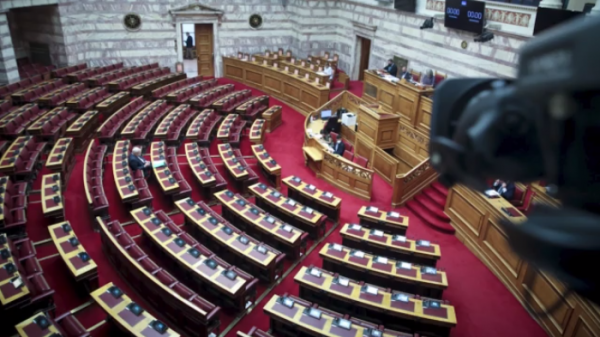
Today, October 4, 2021, the Hellenic Fiscal Council under the chairmanship of Mr. Panagiotis Korliras, in accordance with Law 4270/2014 (article 58, par. 2, as amended by Law 4472/2017, no. 66, par. .2) is evaluating the macroeconomic forecasts adopted in the preliminary draft of the annual State Budget and ascertains the compliance with the limits provided in the “Fiscal Pact” (article 3 of Law 4063/2012).
Evaluation of macroeconomic provisions of the Preliminary Draft
As pointed out in the detailed assessment, there are two elements that play a key role in the macroeconomic forecasts of the State Budget for the year 2022.
(a) The forecast that the immediate negative economic effects of the pandemic crisis will continue to decline during 2022. Consequently, the gradual restart of the economy leads to a strong positive change in GDP in the current year (2021), which will also continue next year (2022).
(b) The estimate that the total investment cost of the economy will rise to high levels as a result, on the one hand of the dynamics of the 2021 recovery, on the other hand of the resources that will flow into the Greek economy from the Recovery and Resilience Fund (RRF).
Based on the above, the most important sources of uncertainty regarding the forecasts for both the year 2021 and the year 2022, in addition to the geopolitical factors, are related to:
• confirmation of positive assessments regarding the evolution of the pandemic,
• developments in the field of energy prices and other productive inputs,
• the smooth and rapid activation of investment support schemes funded by the Recovery and Resilience Fund (RRF),
• possible revisions of data by ELSTAT regarding the GDP growth rate during the current year.
The President of the Hellenic Fiscal Council, Mr. Panagiotis Korliras, stated in this regard: “In 2022, the main source of uncertainty for the Greek economy remains the evolution of the pandemic. However, with the data so far, the situation seems to be manageable and allows us an optimistic view of the Greek economy. Therefore, taking into account the examination of the components of GDP included in this detailed assessment, as the Hellenic Fiscal Council we consider that the target for a rate of change in real GDP of 4.5% in 2022, as reflected in the macroeconomic forecasts of the Preliminary Draft Budget 2022 is achievable and leads us to adopt these forecasts “.
Latest News

PM Mitsotakis to Chair New Democracy’s Committee Meeting
Today’s meeting is seen as a crucial opportunity to halt internal disputes within ND and reaffirm unity within the party.

Trump Tariffs Jeopardize Growth: Piraeus Chamber of Commerce
The tariffs, aimed at reducing the U.S. trade deficit, are expected to have both direct and indirect effects on the European economy

EU Condemns Trump Tariffs, Prepares to Retaliate
As tensions escalate, the EU is expected to continue negotiations with Washington while preparing for potential economic retaliation.

The Likely Impact of Trump Tariffs on Europe and Greece
Trump tariffs are expected to negatively affect economic growth in the Eurozone while Greece's exports could take a hit.

Motor Oil Results for 2024: Adjusted EBITDA of 995 mln€; Proposed Dividend of 1.4€ Per Share
Adjusted EBITDA for 2024 was down 33% yoy. The adjusted profit after tax for 2024 stood at 504 million euros, a 43% decrease from the previous year

Cost of Living: Why Greece’s 3% Inflation Is Raising Alarm
Greece appears to be in a more difficult position when it comes to price hikes, just as we enter the era of Trump’s tariffs.

Fitch Ratings Upgrades the Four Greek Systemic Banks
NBG’s upgrade reflects the bank’s ongoing improvements in its credit profile, Fitch notes in its report, including strong profitability, a reduction in non-performing exposures (NPEs), and lower credit losses

Trump to Announce Sweeping New Tariffs Wednesday, Global Retaliation Expected
With Trump's announcement just hours away, markets, businesses, and foreign governments are bracing for the fallout of one of the most aggressive shifts in U.S. trade policy in decades.

Inflation in Greece at 3.1% in March, Eurostat Reports
Average inflation in the eurozone settled at 2.2%, compared to 2.3% in February

Greece’s Unemployment Rate Drops to 8.6% in February
Despite the overall decline, unemployment remains higher among women and young people.









































 Αριθμός Πιστοποίησης
Αριθμός Πιστοποίησης